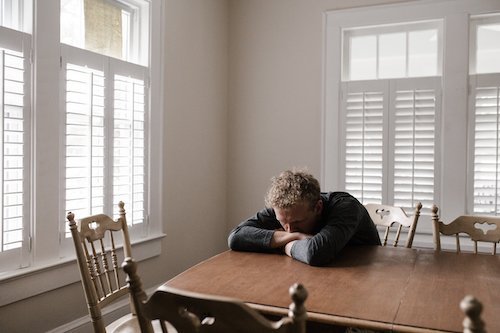Understanding the Relationship Between Addiction and Mental Health
Written by Ashley Taylor, M.S.W, LMSW
Licensed Master Social Worker
I have overheard the conversation of whether or not addiction is truly a disease or if it is a choice honestly too many times to count. The idea is that you have physical control over your ability to pick up a habit that can lead to addiction so therefore, it was the person's choice and the decisions that those people make following their addiction are a direct result of the initial choice that they made to engage in whatever habit they picked up. It sounds super simple.
But I think simplicity is a barrier to understanding addiction at its roots. People are not simple. They’re complex human beings. In the mental health field, people are not just viewed as their physical selves but are viewed in totality alongside the environment that contributed to the person they have become. This idea is called person-in-environment. That seems fair when you reflect on all the experiences that made you into the person you are today. If you compare this idea to a plant, a plant will not grow if it does not have the proper conditions to do so: sunlight, water, good soil, etc. Humans are the same.
Those who deal with addiction are no exception to this person-in-environment lens. Addiction is not just as simple as picking up an addictive substance. Addiction is mental health. The idea behind addiction being a choice is very historical in nature and has a long history in this country. Because society has begun and continues to criminalize people for their addictions, the dichotomy between right and wrong can be easily applied by those who are looking to understand it. Doing drugs is wrong. It was your choice. And for that reason, you will pay the price. But research of the brain has shown us something completely different.
In fact, research has proven a very strong relationship between mental health (brain science) and addiction. Here are some facts about this relationship:
Mental health disorders that go untreated increase the risk of substance abuse
Substance abuse can lead to mental health conditions like anxiety and depression
The use of substances and the withdrawal from these substances can lead to symptoms of mental health disorders
Many times, mental health disorders and substance abuse are co-occurring
Even though the co-occurrence of mental health disorders and substance abuse has been confirmed, there is a lack of empathy for those who have addictions, as opposed to those who deal with mental health conditions. Don’t get me wrong here; there are still people who lack empathy for those dealing with mental health conditions. As a society, people are more likely to empathize with those who deal with mental health conditions than they are to empathize with those who deal with addiction, even though people who are dealing with addiction are more than likely dealing with a mental health disorder as well.
While some people who view addiction as a choice have not been directly affected by addiction, I also believe that the people who have been directly affected by it also have a hard time understanding how a substance could have such a strong hold over their loved one(s). This lack of understanding leads some people to equate their decisions with choice, because that takes less out of them. Navigating a relationship with someone dealing with addiction and substance abuse is difficult. Not in the selfish sense, but having to watch someone you love make choices, or lacking the control to make the right choice and watching the negative impact on them is difficult. We want what’s best for the people we love.
Whether you are someone who has gone through addiction yourself, or you are someone who has watched a loved one battle addiction, there is a lot more to it than the simplification of what is or is not a choice. The truth is that most people (I want to say all, but I can’t make that assumption) want a happy life for themselves. People want to be independent and be able to make a good life for themselves. When we oversimplify complex issues, we lose track of the ability to see people for who they really are. People are more than the decisions they make, and there is also more that goes into decision making besides the difference between “right and wrong”. People are complex, and our experiences shape us.
If you're struggling with addiction, addiction counseling can help support you. To learn more, please contact our counseling office.


